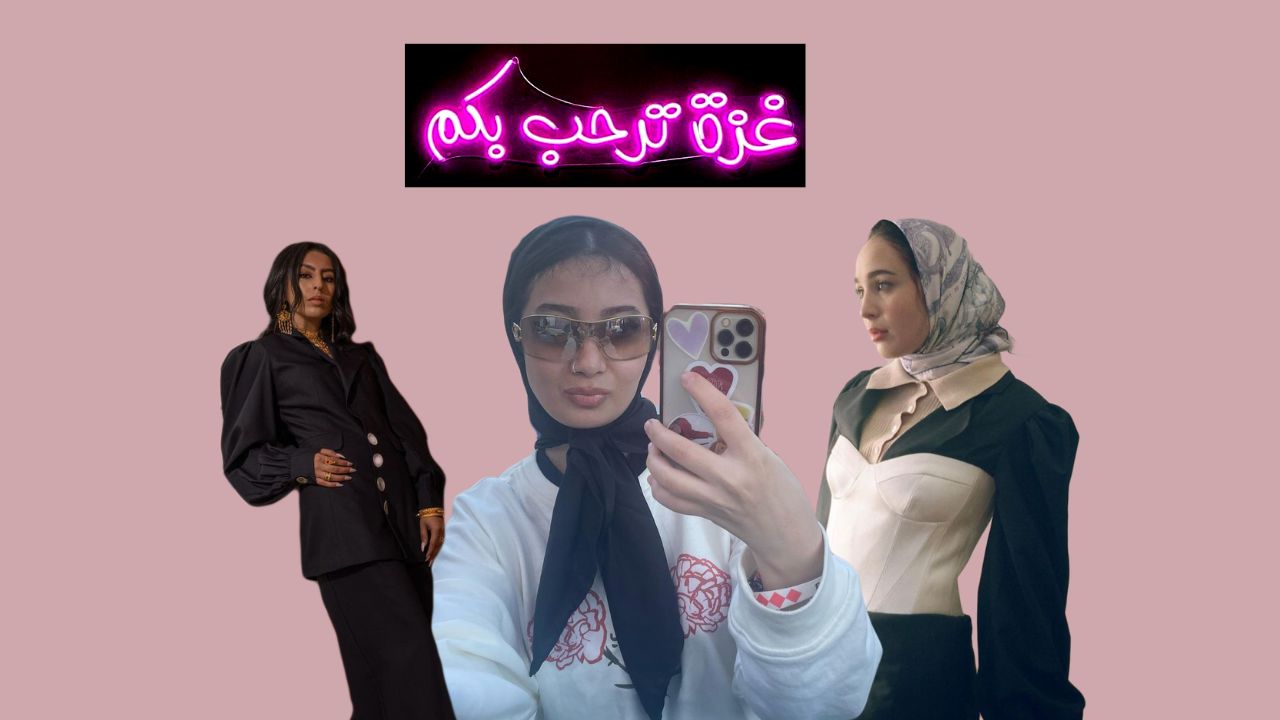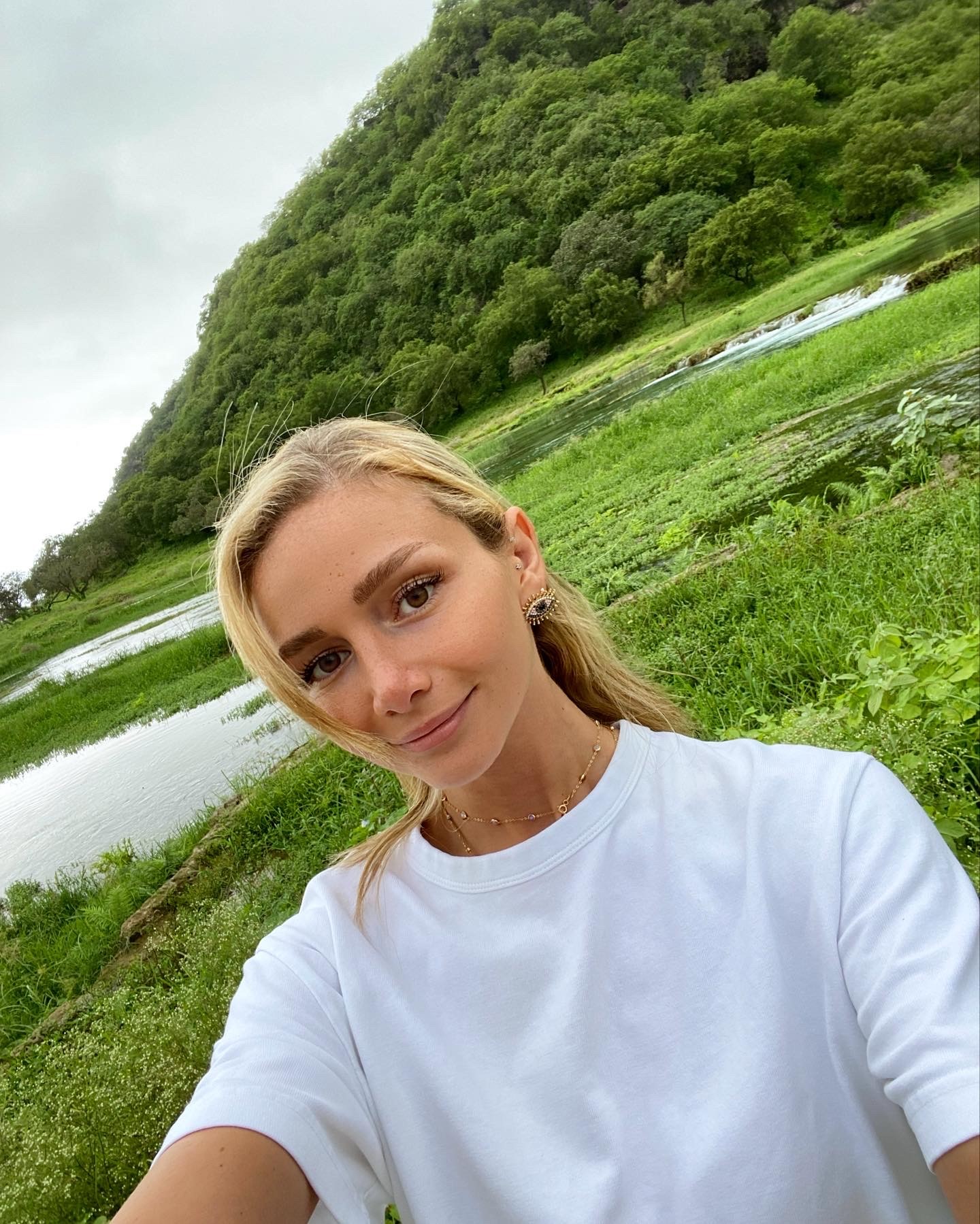
For GRAZIA’s fifth episode on season two of Preserving Palestine, I invited Meera Albaba to join me as we discuss why it is virtually impossible to operate a brand from within Gaza, and the problem with the media’s tokenistic support for Palestine.
Click here to listen on Spotify.
Click here to listen on Apple Podcasts.
Gaza is Meera Albaba’s home. She’s had opportunities to leave and never turn back, opportunities to grow her career and live in peace and security, but leaving Gaza would be like betraying Gaza, and Meera simply wouldn’t stomach that.
People often make the assumption that Meera’s namesake label, Meera Adnan, also operates in Gaza. But how could it when the city is under siege and faces a blockade? How could it when there are extreme water shortages and electricity cuts? “The thing that most people don’t know is that operating a brand from Gaza, in terms of production sampling, getting any material in, is basically impossible at the moment, because the only products allowed to be exported from Gaza are agricultural products at the moment,” Meera explains to me. There are several logistical and economic complications that Meera and other business owners in Gaza face, not to mention that they still have to pay taxes to their occupier. And so it’s no surprise that Meera must outsource production from neighboring countries. “For my first and second collection, I made everything in Turkey. With my Palestinian passport it’s not easy to get into a lot of countries. So Turkey was a very easy and safe option. Currently, I’m working on a new collection which will be produced in Jordan,” she shares.
There’s no doubt that Meera wishes she could operate fully from within her besieged hometown of Gaza, and perhaps the reason she has not left yet, and the reason she moved there at a young age after being raised in the GCC, is because she has faith that one day she may be able to. Meera, whose designs have become instantly recognisable within the region, creates whimsical, feminine and playful clothing. She describes her brand as “a romantic and nostalgic visual monologue,” where she draws inspiration from old family photos. As for the romance she speaks of, her clothes make you fall in love with how Meera views the world from her own lense. Simple, peaceful and just.
Recording this episode was educational and essential for me as much as I hope it will be for those who listen. Meera opened my eyes to just a glimpse of the reality of life in Gaza. You may have noticed whilst listening to the episode that whilst Meera was explaining how weak the internet connection is in Gaza and the problems they face with electricity, that her connection was so weak that we had to reconnect several times. Talk about irony. And yet, Meera can still admit that she is extremely privileged in comparison to other Gazans.
Possibly one of my favourite moments during my conversation with Meera was when she gave insight to how it feels to consistently be limited within a niche category of Palestinian designers. “Publications will write about you but only when there’s like a political movement happening in Palestine,” claims Meera. “Or, when they want to stereotype you and put you in a box that you’re not seen as a designer or an artist, you’re seen as a political person. Personally, I always considered myself as a very political person. And of course, that influenced my work. But for me, I want people to like my brand, or to buy my stuff because they think it has value as an art piece, not just because they feel like they want to support Palestine,” she continues.
I can’t help but relate to Meera, and I would be considered to be a second generation Palestinian child of the diaspora. It’s not only true when it comes to Palestine. Why do we suddenly see dozens of articles on “10 Turkish designers to support” or “how to support Syrian charities” only after the major earthquakes that devastated the countries? Why is it only relevant to collate a group of Turkish talents into one listicle when they face a tragedy, and why does Syria only receive the media coverage it deserves when it’s a natural disaster if the country has always needed our help?
Whilst Meera is undoubtedly proud to be Palestinian, she is not only Palestinian. She is a woman, a designer, a daughter, a friend and an inspiration.









